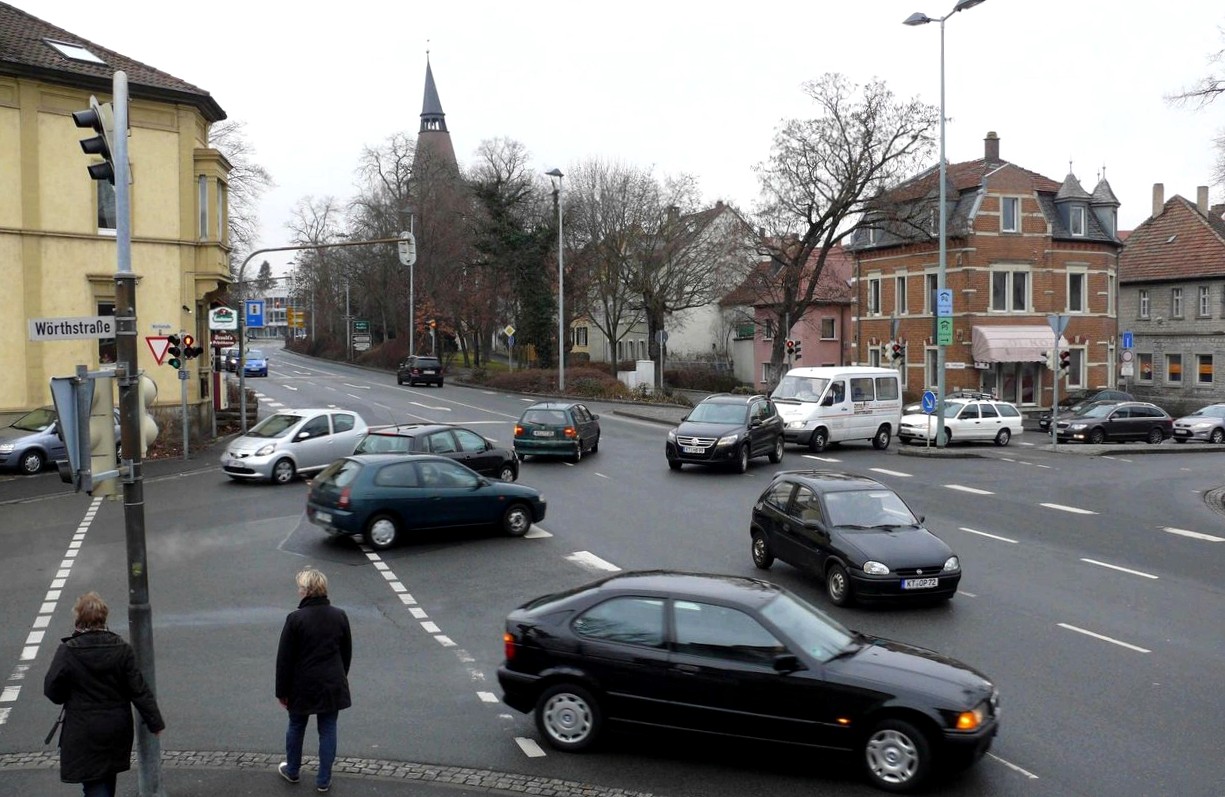
The most important realization after intensive work: the B8 in kitzingen will remain a well frequented road. And the work on the traffic development plan is only just beginning. It’s time for implementation.
Dr. Reinhold baier and his team have collected and analyzed all conceivable data on traffic in kitzingen over the past three years. Result: a 120-page final report describing the goals and development possibilities. Now it’s up to the city council to set the course and set priorities. One proposal was already rejected on thursday evening: the city council does not want a city bus.
The city councils should demand bicycle and pedestrian traffic without neglecting safety: a balancing act that was allowed to occur above all along the B8. Dr. Baier proposes so-called protective lanes for a number of kitzingen roads, on which cyclists can travel. 1.50 meters wide, directly at the edge of the road. "In other cities this works very well", he assured. On roads like the inner sulzfelder or friedrich-ebert-strabe, the protective lanes should first be tested. Later they could be used along the B8 as well. A proposal that caused irritation in the committee. Too dangerous, warned several rates.
In general: the B8 was once again a dominant topic: dr. Baier did not give the people of kitzingen any hope that the importance of the B8 as a through road would change. 18200 cars per day is the average load. "Only twelve percent is through traffic", informed dr. Baier. Will heiben: by far the most drivers have kitzingen as destination or depart from kitzingen.
The burden of heavy traffic should also be put into perspective. On average, 950 trucks per day pass through kitzingen on the B8, which accounts for seven percent of total traffic. "The possibility to squeeze traffic out of the B8 is almost nil", stated the traffic expert. "The federal government will never close the B8 in kitzingen to trucks." Ergo: the B8 will continue to be the backbone of traffic. Nevertheless: the construction of the northern bypass was sensible and right. "It takes up the additional traffic. Otherwise there would be even more traffic on the B8."
Otherwise, the existing road network makes perfect sense. Even with an increase in population, further expansion would not be necessary. The goal must be to concentrate traffic on a few roads and to relieve the rest – especially the city center. "The city center must be easily accessible on the one hand and have a high quality of stay on the other", demanded the engineer. A speed limit of 30 km/h would be only one of several measures to be taken. Possible conversions in kaiserstrabe, konigsplatz or gustav-adolf-platz had to be decided by the city council.
According to the study, however, changes are needed for stationary traffic. Too many spaces in the parking garages are permanently rented out. "They are hardly used during the day", complained dr. Baier. The bleichwasen should be made chargeable, the parking lot at the rot-weib-heim should be prepared for commuters. In the muhlberg area, he proposed metered parking. "Residents should of course get passes to park for free."
After the presentation, city development officer thomas rank (CSU) had already drawn up his own list of priorities: reoptimization of the traffic light system along the B8, construction of the central omnibus station with park & ride facilities in the station area, and redesign of konigsplatz. The should gain in quality of stay and also become attractive for fubgangers.
Measures that also make sense for the majority of the committee. The dismantling of the bus stop at the old hospital in favor of an extension at the rosengarten is also important for manfred marstaller (etc.). "And relatively quickly implementable." Jutta wallrapp (freie wahler-FBW) demanded that the costs for every single mabnahme must be known in time and exactly estimated.
Mayor siegfried muller reminded that the presented plan is nothing more than the basis for a further proceeding. Now it is up to the city council to set priorities. "We will certainly not have worked through the plan in two years."